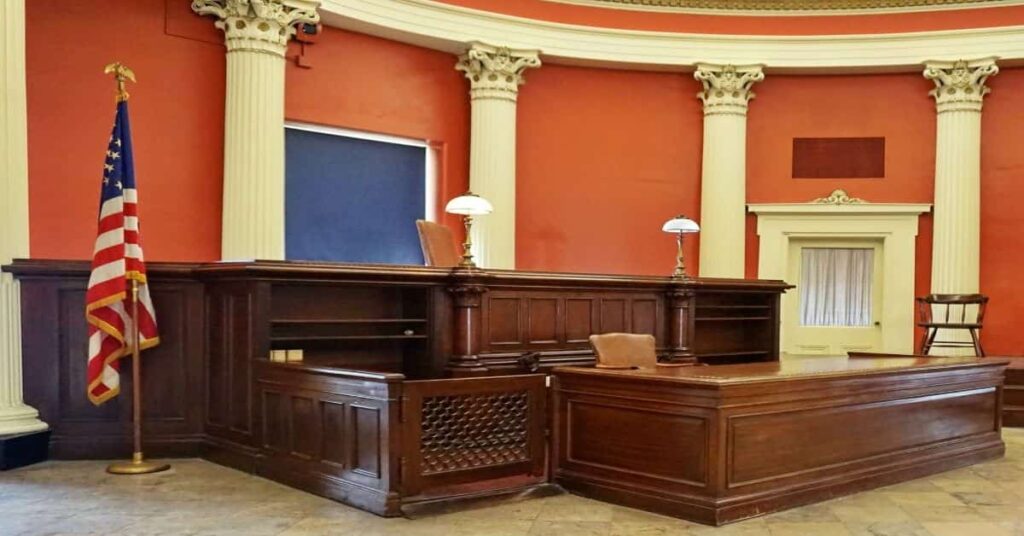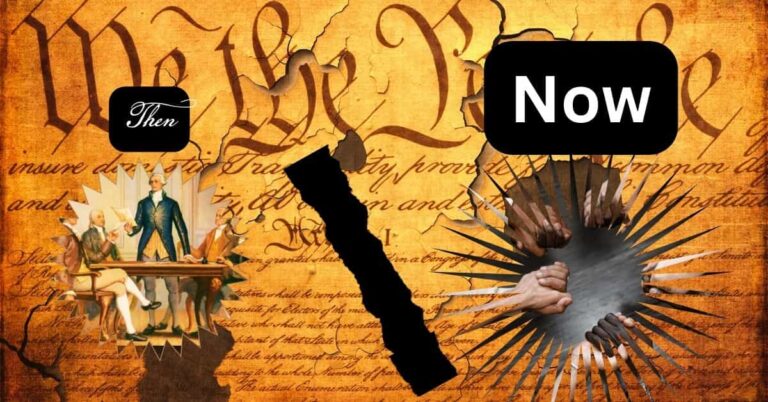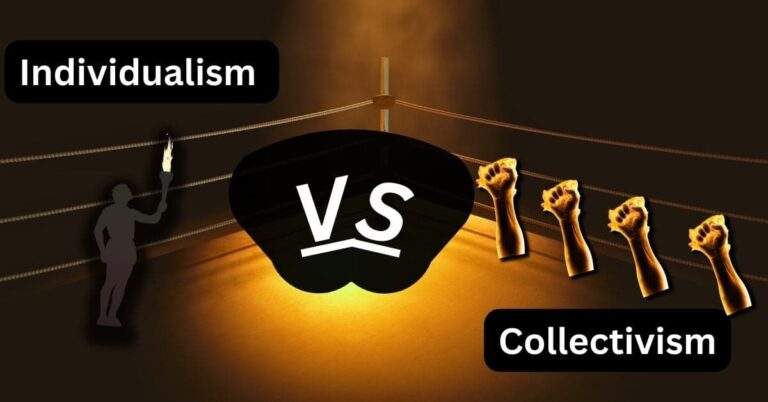The world is full of selfie sticks and mirror pics. You interact with individualists like this every day in America with no conflict. Now, take that same interaction and move it to a collectivist country in Asia.
How is that interaction different? Can you tell a rise in individualism between the 2 countries?
Since 1960, individualism increased some 12%, according to analysts at the journal of Psychological Science. Increased wealth and higher incomes boosted the rise. As a general rule, disgruntled populations and failed institutions also promote individualism.
Different crises through the years saw dramatic displays of it. Those can be good or bad, depending on how you view the world. I’ll show you whether you should fear or accept these dramatic displays of rugged or expressive individualism.
Psychological Science Study on Individualism
A team of several psychologists including Henri C. Santos, Michael E. W. Varnum, and Igor Grossmann studied 78 countries. They used data gathered between 1960-2011. Click here for a link to their study.
They observed the differences between well-known individualist vs collectivist cultures. They looked at their values and cultural practices.
Some of the top categories in their research included:
- Changes in climate conditions
- How quickly viruses and germs spread
- Frequency of natural disasters
- Wealth representation
In their research, they concluded that 34 out of 41 countries showed a dramatic increase in individualism. Some of the larger gains resulted from upticks in a country’s economic mobility. They saw a world increase of 12% since 1960.
Why is 1960 the starting year?
The 1960s represented a cultural shift toward expressive individualism. The end result became the sexual revolution.
When calculating scientific data, outliers exist, and this study is no different. If you want to understand how this happens, Malcolm Gladwell explains this phenomenon in his book Outliers.
For this study, the outliers included:
- No noticeable decline in individualism practices
- Malawi, Mail, Cameroon, and Malaysia
- No noticeable decline in individualism values
- Ukraine, Croatia, Armenia, and China
This study proves the world is trending toward more individualism. But is that necessarily a bad idea?
It allows for more liberty!
In historical terms, individualists eliminated many bad practices such as:
- Slavery
- Racist practices of the Jim Crowe laws
It took independent thinkers to recognize people have dignity.
How More Wealth Increases Individualism?
Capitalism leads to dramatic surges in wealth. And individuals searching for their golden nugget raises the drive for money.
Historical Example:
During the gold rush of 1849, individuals by the thousands flocked to California hoping to strike it rich.
Every prospector looked out for their own interests. Combining efforts with other gold seekers didn’t work.
You couldn’t trust anyone but close family. Therefore, this self-reliance increased individualism.
Modern Example:

Take one of your favorite bands and think back about the group dynamics.
The lead singer thought the group’s success centered around only their talent. It takes several members to form a band. You have the bass, lead guitar, drummer, etc.
One day the lead singer quits and announces they’re going solo. They’re driven by the wealth and fame of what they think their future career will look like.
Sadly, the vast majority don’t succeed. However, there are numerous examples of musicians succeeding. The desire for wealth increased their individualism enough to quit their original band.
If you’re curious about giving trends of individualism, read my article on altruism vs individualism. In the article, I discuss Hofstede’s Cultural Model.
Reason for the Rise of Individualism in the U.S.
In the previous sections, we discussed statistics on individualism’s rise and how wealth affects it. I’m going to tell you specific reasons I’ve researched.
Disgruntled Populous Takes Over
Government protecting and guaranteeing individual rights is standard in a representative democracy. Our Constitution ensures those freedoms. Citizens will protect them with great passion.
What happens when you feel trapped and life is hopeless?
Important aspects of your routines change and vanish too fast for you to process.

Think of what you’re passionate about. And poof, it is gone like a bunny in a disappearing magic act.
Apply the above scenario to a disgruntled populous.
If they’re used to having freedom of speech and religious rights, what happens if they disappear overnight?
They feel betrayed. Thus, an individualist-based society protests their loss and demands the restoration of rights.
This disgruntled population raises individualism. It takes bravery and stamina to keep a movement’s energy.
Governments will try to oppress these bold activists. Because news footage of protestors is bad press. They look weak.
Civil Rights Example in Modern Society
Martin Luther King Jr. needs no introduction.
You mention his name, and he is as famous as Elvis. He has his own federal holiday.
He organized:
- Marches
- Protests
- Sit-ins
All of these acts furthered his cause for equality. King and his supporters displayed heroic demonstrations of individualism.
Most don’t think of the Civil Rights movement as a nonconformist cause. But think of their goals. They wanted civil rights for each person.
Men, women, and children around America wanted more liberty. The only way to achieve this liberty became through peaceful campaigning. They were a disgruntled populous wanting more autonomy- a hallmark value of individualism.
Failed Institutions
Failures receive way more attention than successes. If a bridge collapses, you’ll remember that over a new cutting-edge design saving on costs and time to build.
As a result of people’s attention spans, failed institutions are no different.
What are some failed institutions in the United States that gain attention?
Let’s list some:
- Family
- Justice System
Below I will give you a brief synopsis and explain how each helps raise individualism.
Family- A Look Inside
The family structure is a central element of society and community. People learn their fundamental behaviors to blossom into responsible adults.
We can examine the family structure from our founding to the present. We will gradually see a shift and rise in individualism.
America is hard to pinpoint. LEARN MORE about the impacts of individualism in U.S. Culture.
Concorde, Massachusetts Example- American Revolution to 1850

In a book called The Transcendentalists and Their World by Robert Gross, he discussed family life in Concord, Massachusetts. His book focused on the period from the 1820s to the 1850s.
Here is a quick fun fact for you. The American Revolution started in Concord in April 1775. So, this is the epicenter of American history.
Now, that you have some context. Let’s move on to the family structure.
Starting from the Revolutionary period to the 1820s, Puritans dominated local culture. Life centered around the family. You depended on them for daily life.
The town consisted of one church and a community center. This structure represented communal type living based on a population with similar views.
Slight originality still existed in Concord. Puritans came to America for religious freedom. Those beliefs require an individualistic perspective.
Due to a lack of spiritual freedom within the family and community, many saw this way of life as depressing.
From the 1820s onward, famous reformers known as transcendentalists rose to prominence. Henry Thoreau and Ralph Waldo Emerson are names you must remember.
They preached to free yourself of universal conformity within the community. And they wanted to correct the injustices of old America through a liberty lens. Transcendentalists fought for the rights:
- Women
- Native Americans
- Abolition of slavery.
Gross shows you the history of this transformation. In this case, the rise of individualism helped many people. The family structure became too restrictive for Thoreau and Emerson. They wanted more focus on the “self”.
Self-Reliance Articles:
• Individual self-reliance is what propels you forward. LEARN MORE on why you need self-reliance and independence in your life.
• Do you want a checklist for self-reliance? LEARN MORE by reading secrets to chart your course for self-reliance.
Justice System

Going back to the disgruntled populous, people protest systems-or rights- that are threatened.
Critics of the justice system call it a failed institution. Judges don’t always rule in the way you hope. But they’re our impartial referees of bad laws and policies.
Supreme Court decisions have long-lasting consequences with cause/effect relationships.
Civic Rights Rumblings
Let’s look at the prelude to the Civil Rights movement. Earlier in this post, I discussed the accomplishments of this movement.
Brown vs Board of Education (1954) changed American culture and dynamics forever.
Effectively, this case desegregated America. The courts saw African Americans as individuals.
About a year after the case, Rosa Parks refused to relinquish her bus seat in Montgomery, Alabama.
She failed to realize how her independence rose. Because it takes someone with a strong will to go against society and risk jail time.
In the end, this became a turbulent time in U.S. history. The justice system endorsed more liberty for the individual. As always in court, one group won while another lost.
Opposition to this movement caused cultural headaches for the next 15 to 20 years. Individualism rose on both sides for the protestors for and against desegregation.
Individualism during Crises and Emergency Situations

As I’ve mentioned above, they’re multiple methods and causes of increasing individualism.
One instance I hear in particular is during crises and emergency situations.
Some examples of where this happens are:
- Public health emergencies
- National security threats
To remind you, the above study at the beginning of this blog post used pathogen spread as a metric to determine a rise in individualism.
Governments respond to these threats with varying degrees of mandates, depending on how locals view the actions taken.
Some love the new rules while others hate them.
One section of the population wants people to conform to government decrees. This equates to being more communal.
The opposition sees epic growth of government power and refuses to obey. Their opponents dubbed this behavior radical individualism. But is it radical?
Having such vast differences in opinions creates conflicts.
What are we to do as a nation? This is the question of the century.
Understanding each other requires conversation. In the heat of battle, people won’t talk but will yell at each other instead.
How to proceed?
Being involved in civics and part of a liberty culture includes listening. Another takeaway is to look at human nature.
Here is a series of questions to ask yourself and pose to your opponents during a conversation:
- Are the government’s actions rooted in evil?
- How do the proposed changes affect daily liberty?
- Is the temporary change worth giving up freedom?
- What are the long-term effects of these rules?
- Is the power structure of the government changed forever after this new emergency legislation?
- Is the party leader acting like a dictator?
- Does conforming to these standards go against your values and principles?
In the end, I can’t tell you what to do. We at libertyembers.com believe in free will. I hope only to foster discussion to prevent what I’ve seen in more recent history.
Emergencies happen and they’re difficult to handle. LEARN MORE about how to overcome individualism vs collectivism.
Conclusion
Individualism is unique to American culture. We embrace it. It influenced independent thinkers all over the world.
Researchers looked at data over 51 years from 1960 to 2011. They determined a 12% increase in individualism.
I can tell you with certainty that the number continues to be accurate after traveling to many countries to see it myself.
Wealth and economic mobility promoted it too. Attitudes to obtain different levels of wealth require a certain amount of self-awareness. You’re more vocal about your likes and dislikes the more confidence you gain. And money brings confidence.
Citizens see failed institutions as a recipe for change. They don’t like the status quo and are willing to use their individual rights to inspire transformation.
I gave 2 examples of failed institutions that promote individualism:
- Family
- Justice System
The family structure during the early American years didn’t work well with the younger generations. Ralph Waldo Emerson became a big voice in the Transcendentalist movement.
Martin Luther King Jr. spoke for African American individual rights. King is the face of the Civil Rights movement.
Increases in individualism don’t always have to be bad. There are instances promoting good. We shouldn’t be afraid of it as long as we try to understand the other side. Communal living and individualism are natural adversaries requiring care.
If you don’t know the fundamental aspects of individualism vs collectivism, LEARN MORE as I guide you through the basics of these terms. This is a must read if you want to discover the economics, politics, and family dynamics.
Do you see individualism rising within your sphere of influence?
J. Liberty
Printed Sources:
Gross, R. (2021). The Transcendentalists and Their World. New York: Farrar, Straus, and Giroux.
Photo Credits:
© byakkaya via canva.com
© travelpixpro via canva.com
© The Everett Collection via canva.com
© Matthew_Miller via canva.com



